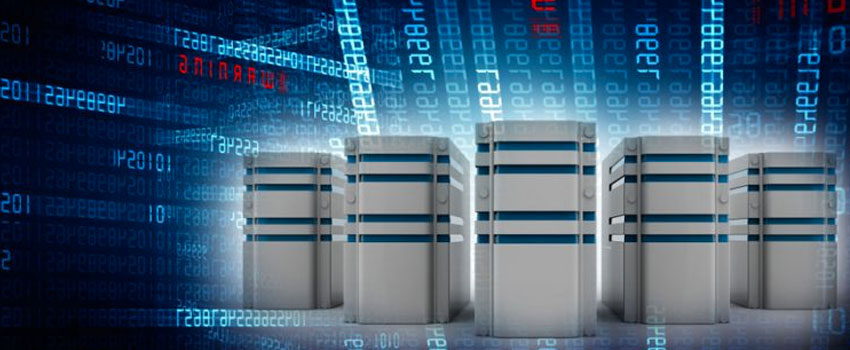A Running Server can’t afford to Stop!
In this day and age, your biggest resource is your data. The modern human experience has become so entangled with digital devices that it’s hard to run away from them. This is true even if your use is extremely limited. The chances that you’re somehow using the internet or any digital device are high. If this is the case, then you need to realize how important the data stored here is.
Whether you’re running a business or your use is personal, the data stored on any digital platform can be at risk of being lost. Such data loss can cause serious long term damage. In case the data is stored on a dedicated virtual server, it’s important that you consider how to back it up. Dedicated servers help multiple users to access resources stored on the server. To make sure that data protection is effective, and data is safe in case of a server failure, it’s important to consider a backup plan.
FREE TRIAL FOR 30 DAYS – TRY IT NOW
Events of a Server Failure
Servers are extremely resourceful in helping store large volumes of data. This is why their use is extremely common today. Users can run a mobile app, program, game or even email client on the server. The data is preserved on such servers through the use of the internet. Because of the reliance of businesses on such dedicated servers, it is important to keep reliable backups.
Suppose a scenario plays out which causes the server to crash. Every minute that the employees of a company do not have access to data can cost significant financial damage. Server downtimes usually have major costs involved with them for businesses. Especially if the server fails entirely, a data loss of such a magnitude can prove disastrous. This makes the need for a backup strategy all the more important.
A number of events can play out resulting in a failure of the server. These are:
- Inadequate maintenance of the physical environment can cause a server to fail. It should be important to know how vital it is to maintain the required physical environment. Servers demand a cool environment to run in or a proper flow of air between servers. In case the temperature is too warm, the server can fail. If the individual servers do not have a proper outlet or space for the flow of air, the server can fail.
- The patches integrated on to the server can cause a failure if they are not properly up to date.
- An operating system being used on the server that is no longer supported can cause a server failure.
- Dissimilar hardware being used for the same server process can possibly crash the entire system.
- Servers have to be regularly maintained. If they are not, storage space can run low. Storage space can generally run low for a number of reasons on a server. This can be space being taken up by the server logs.
- If the server is used beyond its processing capacity, it can crash. This is probably the most common cause of server failure. Servers are always limited by the number of processes they can handle. This means that the number of users that can use the server at once is also limited. If more users use the server than the available limit, the server can crash.
- Even server hard drives can fail. A number of factors can cause the server hard drive to fail. After a certain point of usage, these drives become prone to failure. In cases such as these, a loss of data can be very harmful. This is why it’s important to keep server hard drives maintained as well.
- A common cause of server failure is a virus. If a server is hosting a website, a number of potential threats can pile up. These can cause serious damage to the server. It can result in downtime, or even crash the server entirely.
- A failure to properly document the server credentials can cause a failure to run. This means that a failure to remember the proper credentials to log-in to the relevant server can result in a problem. If such vital information is lost, the server can fail.
- Improperly installed software or an issue in the software of the server can also cause serious problems. If this happens, the server can crash causing data loss.
The above scenarios show multiple reasons for a server failing. While steps can be taken to minimize this risk, it still exists. This is why it’s important to properly plan out your strategy for your server protection.
Factors to consider when choosing a Server Backup Software
A number of services exist that offer the backup solution of your server. Services such as Backup Everything, Acronis Backup, Cloudberry Backup and Vertias Backup Exec are some examples for your Windows server backup. If you’re running a business and have to choose, you should keep a number of factors in mind. These factors will help you plan out the most efficient strategy. It will matter in the long run, when you actually need it.
The factors mentioned below should be considered when deciding from the multiple backup options available.
Footprint
A good backup software for your server will take up a significant amount of memory on your server. This is because of the large amount of space and processing power that will be required for the dedicated backup. This can present itself to be a problem as well. If a server backup service starts occupying a large amount of storage space and processing power, it will slow down the workflow. The longer it takes to back up the data, the more are the chances that the server might become slow or unavailable. This is why it is very important to consider how much of your server’s memory and processing power will be required. That’s why make sure the software you choose for your server backup does not affect the normal use of server resources.
Saving Space for Storage
Efficient software for your server backup utilizes as little space as possible. This is done by compressing data. Repetitive data is skipped over and the storage size of the data being backed up is thus shortened. This helps save up on the space required for the backup. Every good server backup software will have its own compression mechanism for this purpose.
A good service will even allow you to choose how much data you wish to compress. It is also an important factor to consider that the compression rate can change depending on the type of the file. However, the software being used for this purpose will make sure to inform you of this compression.
It is also important to know that compression rates do not always work as you might think. Most server backup services can exaggerate the compression rates. This is why businesses should also keep a certain extra space available on the server for the backup.
The higher the compression rate, the more server resources will be used up. These resources can be server RAM and CPU, but you eventually save up storage space. Businesses should keep a compression rate that does not disturb work flow. In the end, your personal requirements will determine the amount of storage space you will need to save.
Options for Backup and Recovery
While all server backup softwares might backup your data in a similar manner, their recovery options might be different. Suppose in case of any unwanted event, the backup is now required from the backup software. While some administrators might be able to manually start the backup process, some might require automated backup processes.
Businesses sometimes also require that the backup process start immediately. This option is not available with every backup software in the market. Similarly, some businesses might require that a few vital programs should still function while the backup is going on. Backup softwares vary in this option, as not all give users the option to continue use during the backup job.
Some users might require the backup to be fast, and so would choose to halt all work flow. This would give the backup software the ability to use all processing power of the server and make the backup process faster.
This is why your disaster recovery plan should also be in order. If you plan this process out, it will save time in case the backed up data is needed. In the end, this will also depend upon your own requirements. If you can halt all workflow and give the software the ability to use all processing power, the backup will be fast. If you cannot afford some programs not get running, then you can look for a service accordingly.
Documentation Process
It is important to see how much documented help is available for the software you will use. No matter how much experienced person is handling the server, the support available for the software always helps.
While looking for software to help back up the server data, there should be a proper focus on finding the software that have the proper resources regarding the software’s use. In case an issue arises and there is a little documentation or help available to the administrator, the software can prove to be useless. A good server backup software will have multiple resources and support available for all possible scenarios.
Additional Features
Businesses must choose a software for their server backup that matches what they need. This means that although service is providing an efficient solution, it does not specifically meet your personal needs. When choosing a service, additional backup tools being provided can prove very resourceful.
The additional features being provided might act as a business’s primary need. Take the process of de-duplication for example. This ensures that the software does not backup two duplicate files. While the server might have stored such files based on usage, the backup might not need them. An automated process sorts this out and ensures that no copy of the same file is uploaded. This ensures that storage space is saved during the backup process for optimal use.
Another feature that businesses might require in their server backup solution is the system configuration backup. While servers do store files on the hard drives, they also contain system configuration files. These can be in the form of system registry, certificate services, COM, database and similar other files. Such a system state backup might not be available with all backup services. Such a backup feature might prove resourceful for some businesses.
Other features include integrating the server to other hosts as well. These could cloud storage services (such as Google Drive or Dropbox), local backups and similar third party systems. Some server administrators might find it resourceful to integrate their system with other such systems as well.
Final Note: Investing in your Business
If given the chance, anything can go wrong. If businesses fail to ensure a backup strategy for the data stored on their servers, long-term damage can be caused. As such, choosing a backup solution for your server data is extremely important. In the long run, it proves to be an important factor when investing in your business.
Nowadays, most businesses rely on digital devices to keep an efficient workflow. A loss of valuable data can result in a significant financial loss. To ensure a backup plan that helps you prepare for any such unwanted scenario just seems like the smart thing to do.



